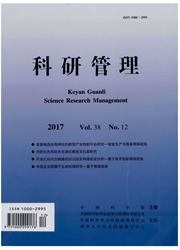

 中文摘要:
中文摘要:
知识工作背景下,传统以控制为导向的绩效评价系统明显不适应当前快速反应和工作自主要求的组织策略。而现有研究拘泥于结构化设计,缺乏对不同情境下绩效评价有效性的探讨。本文借鉴传统机制设计理论,在满足员工参与约束、激励相容约束的基础上引入承诺约束,构建了一个权变而动态的激励一绩效模型,并据此分离出三种情境下的最优绩效评价系统模式。本文证明,社会控制及自我约束与绩效控制之间存在反向替代关系,在企业与知识员工之间建立关系型心理契约,通过愿景引导、文化熏陶、自我主导等手段,能够深度挖掘员工创造力、组织凝聚力、团队协同力等隐性价值驱动因素,促进企业在更高层面上创造价值。
 英文摘要:
英文摘要:
The traditional control- oriented Performance Appraisal System (PAS) doesn't adapt to the current organizational strategy that requires rapid response to the customer and self - management of the individual in the knowledge age. Most existing researches on PAS rigidly emphasize structural design which is lack of probing into the effectiveness of PAS under the different contexts. By adding a constraint condition - commitment constraint into the basic mechanism design model which includes two constraint conditions, namely, the individual rationality and incentive compatibility, an incentive - performance model is con- structed, and an optimal PAS design model under three situational contexts is deduced. The conclusion is that there is a reverse substitution relationship between performance - control, social - control, and self- restraint. Therefore, an appropriate PAS design can excavate some implicit value- driven factors, such as the staff's creativity, organizational cohesion, and team synergy though vision inducement, culture edification, and self - driven and promote the enterprise creating values at a higher level.
 同期刊论文项目
同期刊论文项目
 同项目期刊论文
同项目期刊论文
 期刊信息
期刊信息
